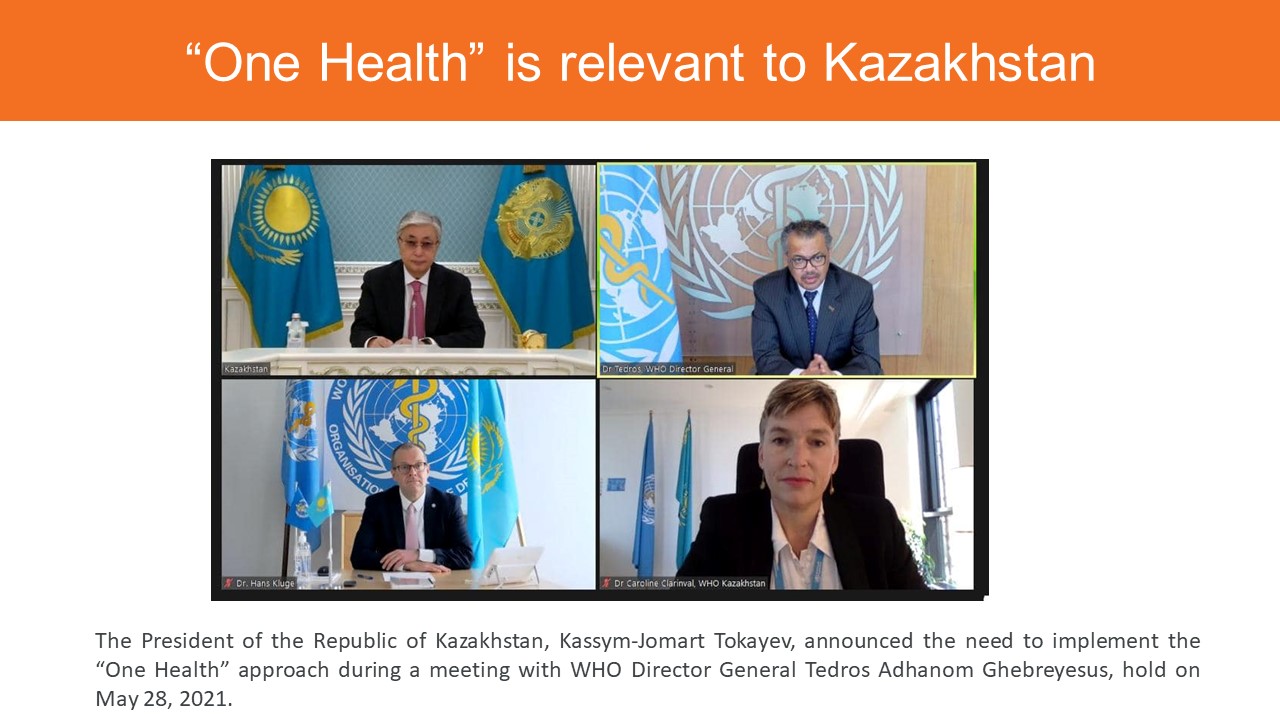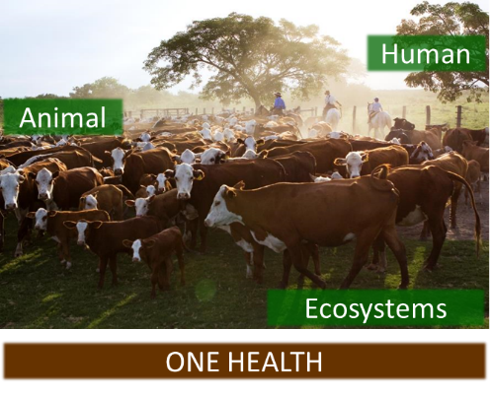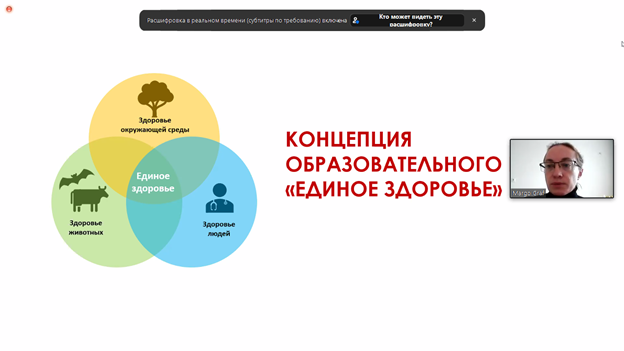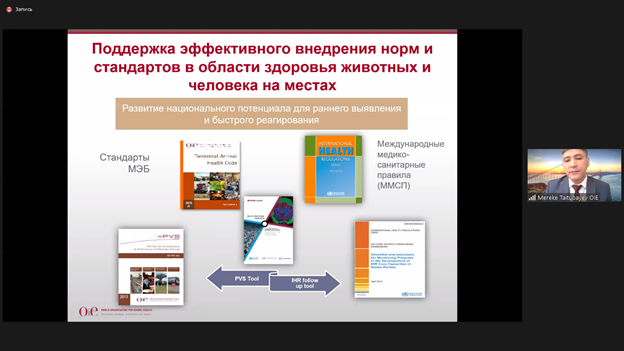



The WHO Country Office in Kazakhstan, together with the Ministry of Health of the Republic of Kazakhstan, organised and conducted a round table with the introduction of “One Health” educational materials into the training program for public health professionals, where the OIE Sub-Regional Representation for Central Asia was invited as the main partner in the framework of the “One Health” strategy. More than 50 people took part in the round table, including the representatives of the Ministry of Health of the Republic of Kazakhstan, WHO, the World Organisation for Animal Health (OIE), and the teaching staff of medical universities.
Within the framework of the round table, the relevance of the implementation of an intersectoral and multidisciplinary approach to the problem of zoonotic diseases, antimicrobial resistance, food and biological safety, and the impact of environmental factors was considered in detail.
The concept of “One Health” today is the only effective tool as a response to global challenges for the health of people, animals, and the environment. The current Pandemic is clear evidence of the fact that the relationship between humans – animals – the environment is evident and how this ultimately affects our lives, noted M. Taitubayev, Head of the OIE Sub-Regional Representation for Central Asia.
“Each of these challenges is due to many factors, a significant part of which is outside the traditional functions and powers of the health care system. This means that none of the sectors involved in solving these problems can provide an effective response alone, so future public health professionals must understand how to build interactions with other sectors and systems, including agriculture, veterinary medicine, ecology, etc.” – said the WHO consultant E. Spatayev.
“We are on the verge of new pandemics, which will be caused by already known pathogens that have acquired resistance to antibiotics, so it is important to join the efforts of the health system with other sectors using antimicrobial drugs and ensuring food safety,” – said WHO technical officer V. Stetsik.
The WHO Country Office also presented the developed modules on “One Health” for the undergraduate and graduate levels. During the ensuing discussion, given the high relevance of the issues included in it, the roundtable participants proposed to increase the number of hours for these modules. In addition, it was proposed to organize an additional seminar for university educators, in which experts from WHO and other international organizations could provide in-depth training in technical areas related to the “One Health” approach.
The head of the OIE Sub-Regional Representation for Central Asia, Dr Mereke Taitubayev, noted the high activity of the round table participants and suggested holding a similar event with the involvement of agricultural universities.




